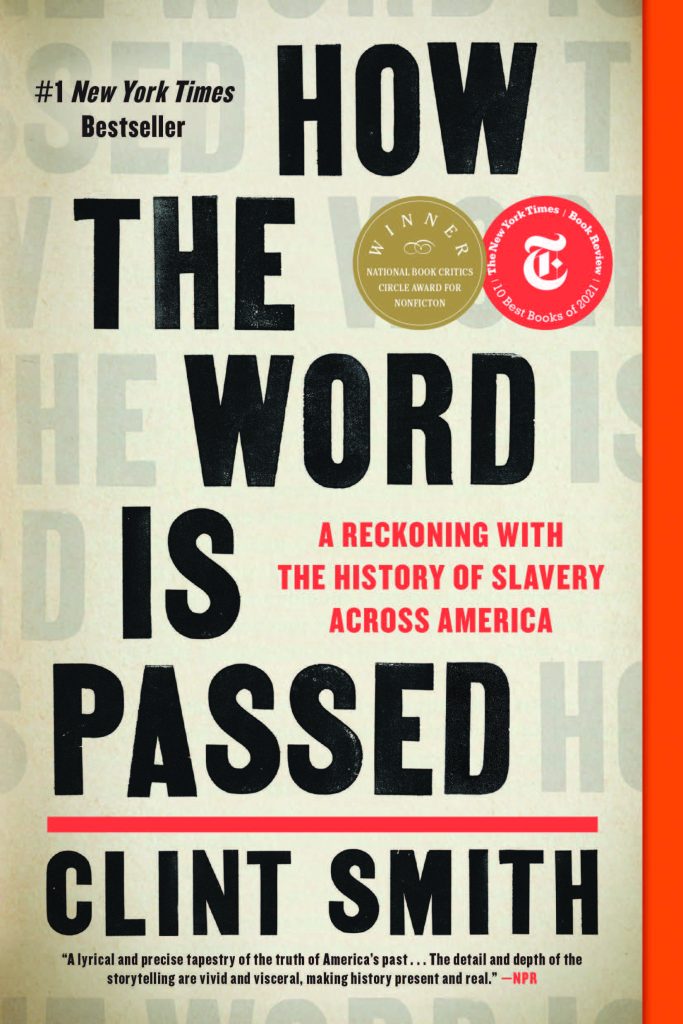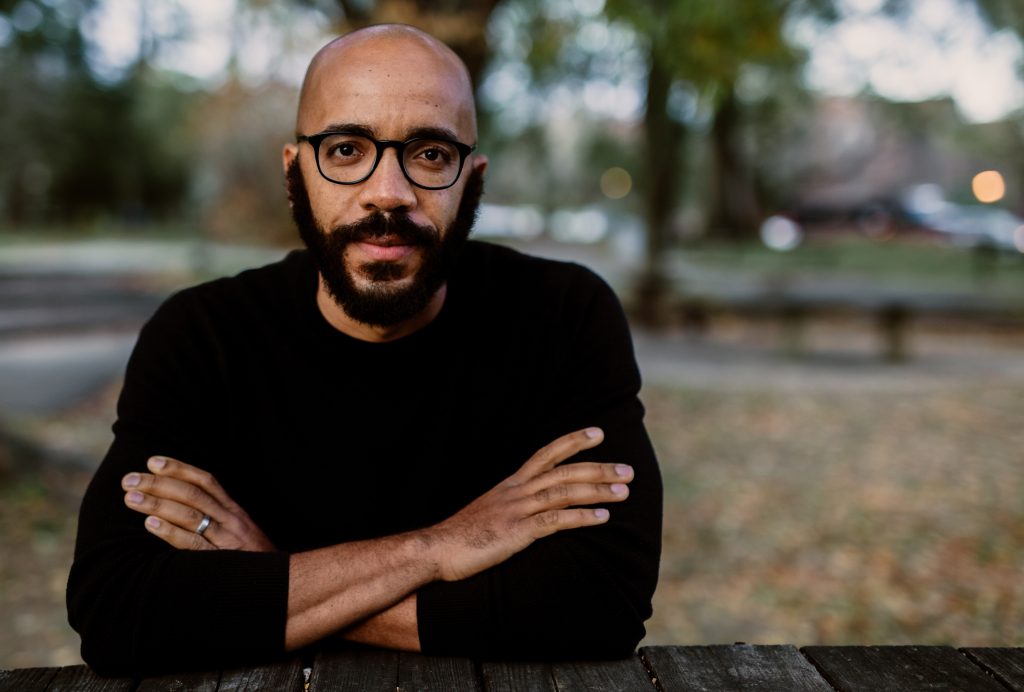City and University partner for Community Read
The Community Read Committee has selected Clint Smith’s “How the Word is Passed: A Reckoning with the History of Slavery Across America” as its Community Read for the 2023-24 school year.

Amanda Clay Powers, professor and dean of Library Services, said the Community Read was renamed for this year in an effort to attract people from the city of Columbus and the Golden Triangle. She said the selection of “How the Word is Passed” by the Community Read Committee fits with the mission of Mississippi University for Women and the Community Read to foster intellectual curiosity and broaden our understanding of our world, our community and our neighbors.
“For the last several years, starting with our choice of ‘Just Mercy’ by Bryan Stevenson (which was the 2021 Community Read) we have been getting more interest and participation from the larger community in Columbus,” Powers said. “We love the energy and excitement this brings to our Community Read, so we have reorganized our group, bringing in community members to the Committee, and choosing a book that resonates on campus and in the wider community.”
Powers said the Community Read Committee is excited to partner with the city of Columbus for the event. Columbus Mayor Keith Gaskin attended a meeting at Friendly City Books in downtown Columbus last month where Mississippi School for Mathematics and Science (MSMS) students reported on their reading of “How the Word is Passed” through their African American History class led by Chuck Yarborough. He said it was most impressive and that he believes the Community Read project is timely endeavor for citizens in Columbus.
“I believe the city partnering with The W on a community read around the book ‘How the Word is Passed’ is an important exercise for our students and citizens,” Gaskin said. “This type of inclusive reading initiative is long past due in our community, and I hope it will inspire other universities and municipalities to follow our lead.”
“How the Word is Passed” was named a Best Book of 2021 by “The New York Times,” “The Washington Post,” “The Boston Globe,” “The Economist,” “Smithsonian,” “Esquire” and numerous others, and was named one of “GQ’s” 50 Best Books of Literary Journalism of the 21st Century. It is the story of the Monticello Plantation in Virginia, the estate where Thomas Jefferson wrote letters espousing the urgent need for liberty while enslaving more than four hundred people. It is the story of the Whitney Plantation, one of the only former plantations devoted to preserving the experience of the enslaved people whose lives and work sustained it. It is the story of Angola, a former plantation-turned-maximum-security prison in Louisiana that is filled with Black men who work across the 18,000-acre land for virtually no pay. It is the story of Blandford Cemetery, the final resting place of tens of thousands of Confederate soldiers.

“When I learned ‘How the Word is Passed’ was chosen for the Community Read, I added the book to my ‘to-read’ stack, and I’m glad it jumped to the top of the stack,” The W President Nora Miller said. “The book is well written, with each chapter about a historical place and how the history of slavery touched that particular location or monument.”
The John C. Fant Memorial Library’s Inclusion, Diversity, Equity and Access (IDEA) Committee Book Talk Series also has chosen “How the Word is Passed” to be part of its annual book talk series this fall.
Miller said reading the first chapter inspired her to take the Monticello from Slavery to Freedom tour. She said she was fascinated with touring Monticello through the lens of the enslaved — while catching snippets of the general tour that was going on at the same time and trying to reconcile those two different viewpoints. Miller said that tour led her to her current read: “The Hemingses of Monticello” by Annette Gordon-Reed.
“We are surrounded by history here in Columbus, and the more we explore our own history from different lenses the better we can understand who we are and how the legacy of slavery has influenced our community,” Miller said.
Those interested in participating in the Community Read can find out more about the event at 6 p.m. Monday, May 8, at MSMS’ The Eighth of May Emancipation Celebration at Historic Sandfield Cemetery.
The Community Read will meet at 4 p.m. on the last Wednesday of each month, starting in August, to discuss two chapters each meeting. This will give participants an opportunity to share ideas about the Community Read and allow people to dig into the chapters. Each chapter focuses on a different part of the history of slavery, from monuments to prisons to Monticello, which will allow readers to discuss each of them independently and enable more people to engage with the book.
For more information about “How the Word is Passed” and to purchase the book, go to: https://www.muw.edu/read/
FOR IMMEDIATE RELEASE
May 8, 2023
Contact: Adam Minichino
acminichino@muw.edu
(662) 329-1976